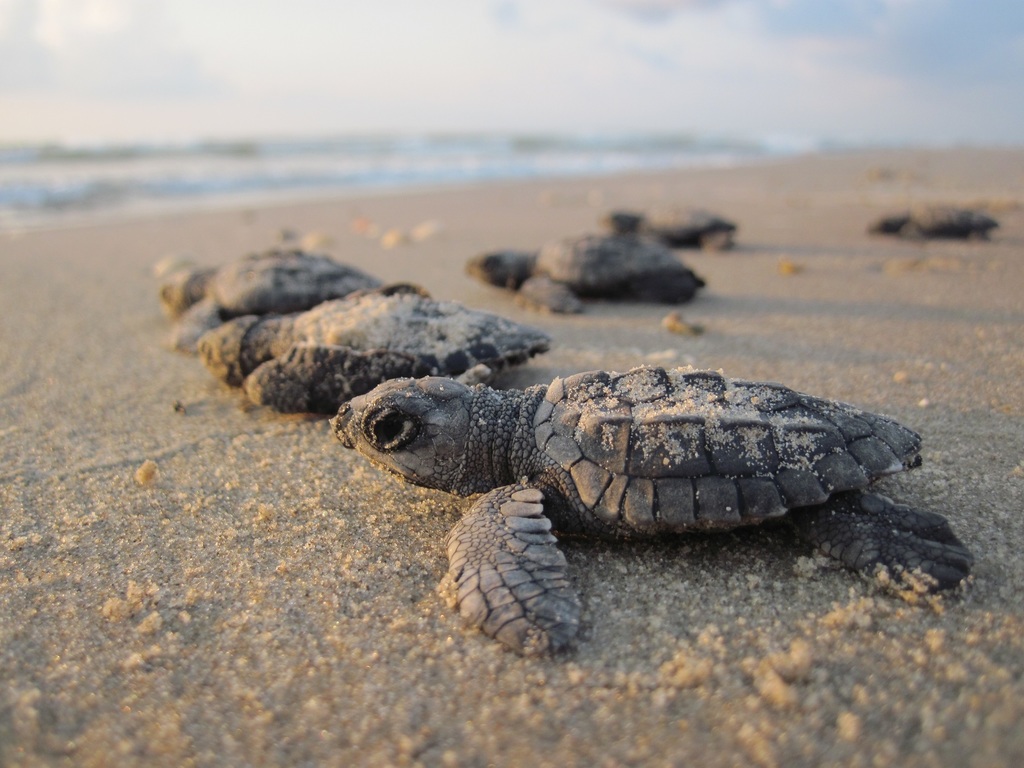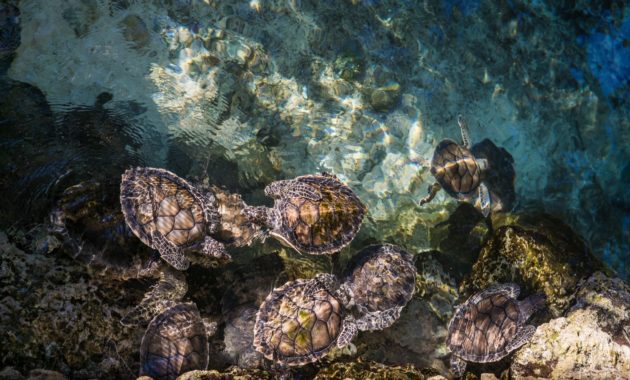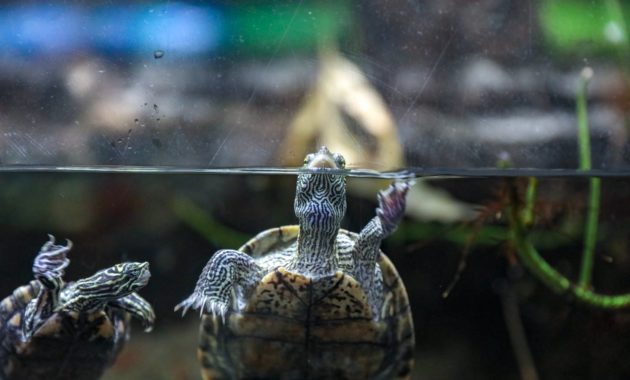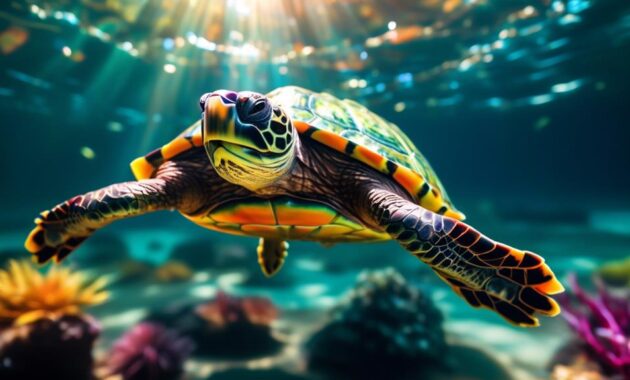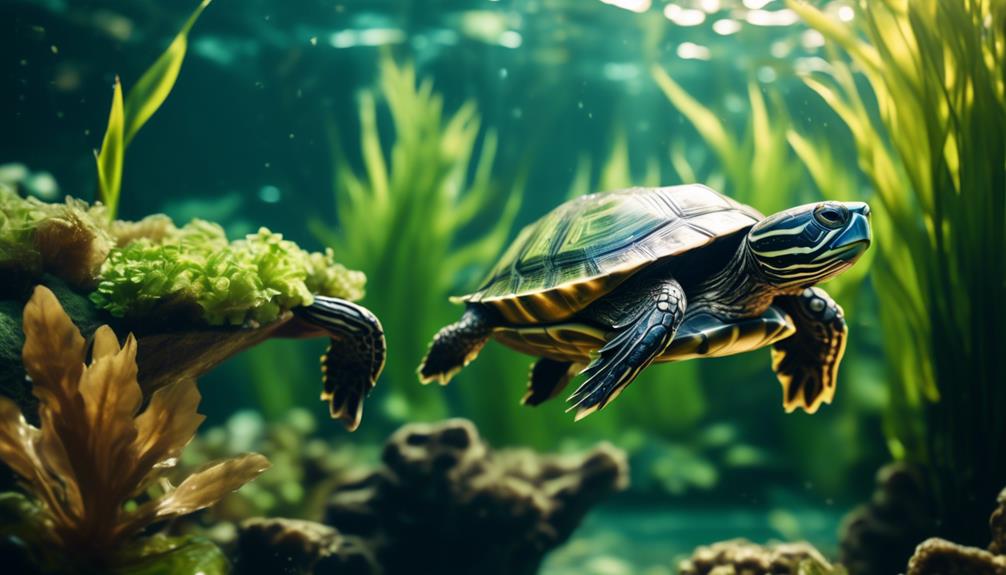
Looking for a truly remarkable aquatic companion that will captivate your senses? Then prepare to be amazed by the Rare Map Turtle.
This extraordinary creature, with its distinctive map-like pattern and ridged keel, is sure to leave you in awe.
But that's just the beginning. With a lifespan of over 20 years and a docile temperament, the Rare Map Turtle is the perfect addition to your community enclosure.
So, get ready to dive into the world of this fascinating creature and discover all the wonders it has to offer.
Key Takeaways
- The Rare Map Turtle is a small to moderate-sized turtle with a distinct map-like pattern on its carapace and a ridged keel.
- It requires a large enclosure with proper filtration, deep water for swimming, and a basking site with a minimum temperature of 80F and UVB lighting.
- The Rare Map Turtle thrives on a diverse diet of snails, mussels, fish, crickets, worms, and aquatic insects.
- It has a docile personality and is suitable for community enclosures, enjoying basking and spending time in the sun.
Physical Characteristics
The Rare Map Turtle has distinct physical characteristics that set it apart from other turtle breeds. It's a small to moderate-sized turtle with a lifespan of over 20 years. You can find them in large rivers, tributaries, backwaters, oxbows, and floodplain ponds across states like Missouri, Minnesota, Illinois, Indiana, Nebraska, the Dakotas, and Kentucky.
When not in water, they often bask and can also be seen in flowing water. These turtles are sensitive to water quality and require a large enclosure with proper filtration.
They've light yellow lines on their carapace, forming a map-like pattern, and a ridged keel. The carapace color ranges from brown to olive, while the plastron color varies from yellow to cream with dark lines. Even their limbs and head have light yellow lines.
Habitat and Range
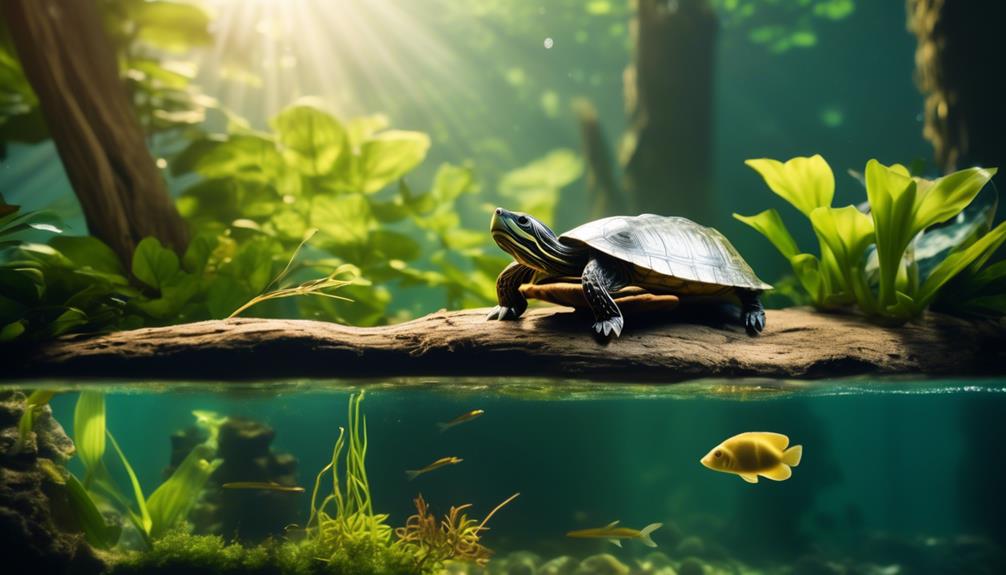
As we explore the habitat and range of the Rare Map Turtle, it becomes evident that these unique turtles can be found in a variety of aquatic environments across several states. Here are some key points about their habitat and range:
- They can be found in large rivers, tributaries, backwaters, oxbows, and floodplain ponds.
- The range of these turtles includes Missouri, Minnesota, Illinois, Indiana, Nebraska, the Dakotas, and Kentucky.
- Rare Map Turtles are sensitive to water quality and can be seen in flowing water.
These turtles are well adapted to their aquatic habitats and can thrive in a range of environments. Whether it's a river or a pond, the Rare Map Turtle can make itself at home as long as the water quality meets its needs.
Environmental Needs
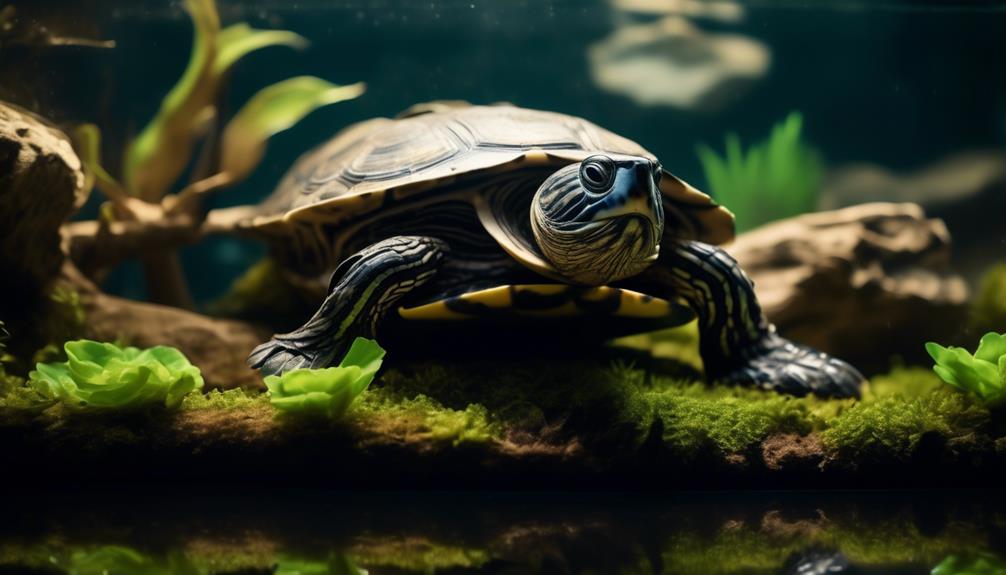
To ensure the well-being of a Rare Map Turtle, it's essential to provide an appropriate environment that meets its specific needs.
These turtles require a large enclosure with proper filtration to maintain water quality. They need deep water for swimming and a log snag for resting. Additionally, they require a basking site with a minimum temperature of 80F and UVB lighting for basking.
In terms of diet, Rare Map Turtles are carnivorous and primarily eat snails, mussels, fish, crickets, worms, and aquatic insects. They may occasionally consume aquatic plants. Commercial turtle pellets can also be fed to them.
These turtles have a docile personality and are suitable for community enclosures.
Diet and Feeding Habits
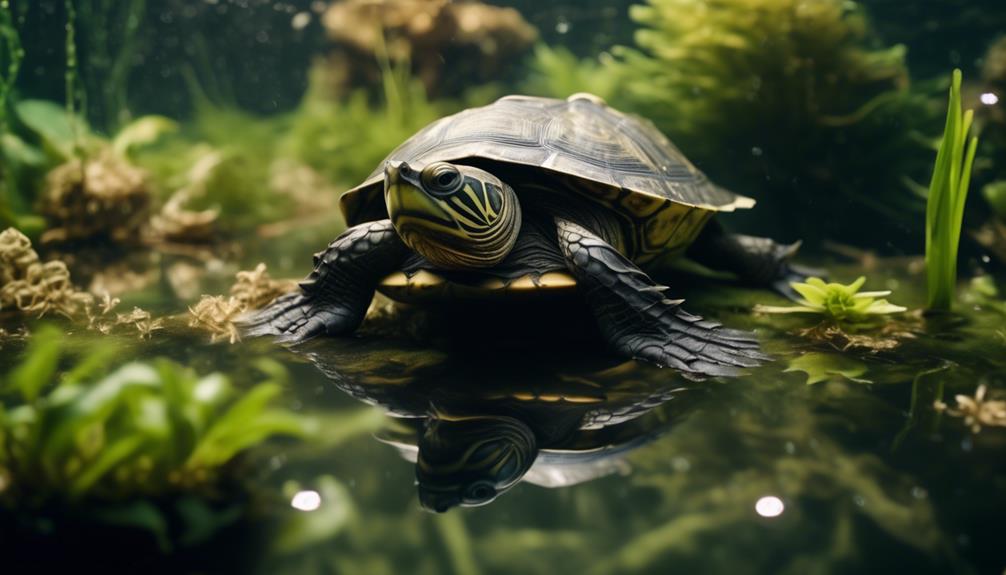
Rare Map Turtles have a carnivorous diet, consisting of snails, mussels, fish, crickets, worms, and aquatic insects. When it comes to feeding habits, here's what you need to know:
- Variety is key: These turtles thrive on a diverse diet. Offering a mix of snails, mussels, fish, crickets, worms, and aquatic insects ensures they receive the necessary nutrients.
- Occasional plant consumption: While their main diet consists of animal sources, Rare Map Turtles may occasionally nibble on aquatic plants. Including some vegetation in their diet can be beneficial.
- Turtle pellets as an option: Commercial turtle pellets can be fed to supplement their diet. However, it's important to ensure that the pellets are specifically formulated for aquatic turtles and aren't the sole source of nutrition.
Behavior and Personality Traits
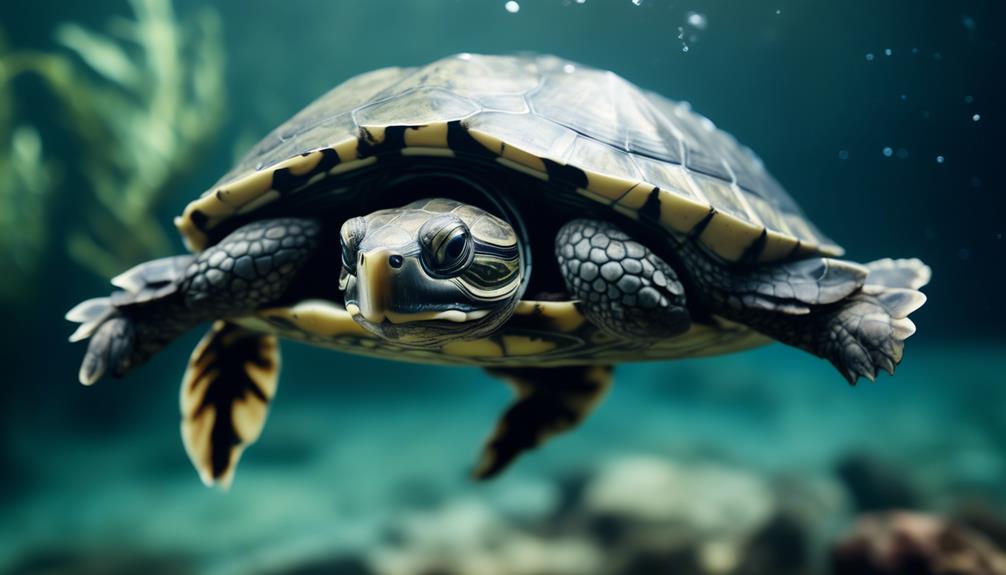
What makes the Rare Map Turtle stand out in terms of its behavior and personality?
Well, this fascinating aquatic companion has a docile personality, making it suitable for community enclosures. It enjoys basking and spending time in the sun, often seen soaking up the rays on logs or rocks.
When not basking, the Rare Map Turtle can be found swimming in flowing water, occasionally surfacing to take a breath. It's a curious and alert creature, always exploring its environment and showing interest in its surroundings.
This turtle is also known for its sensitivity to water quality, making it important to ensure a clean and well-maintained habitat.
With its calm demeanor and natural curiosity, the Rare Map Turtle is truly a captivating companion.
Care and Maintenance Tips
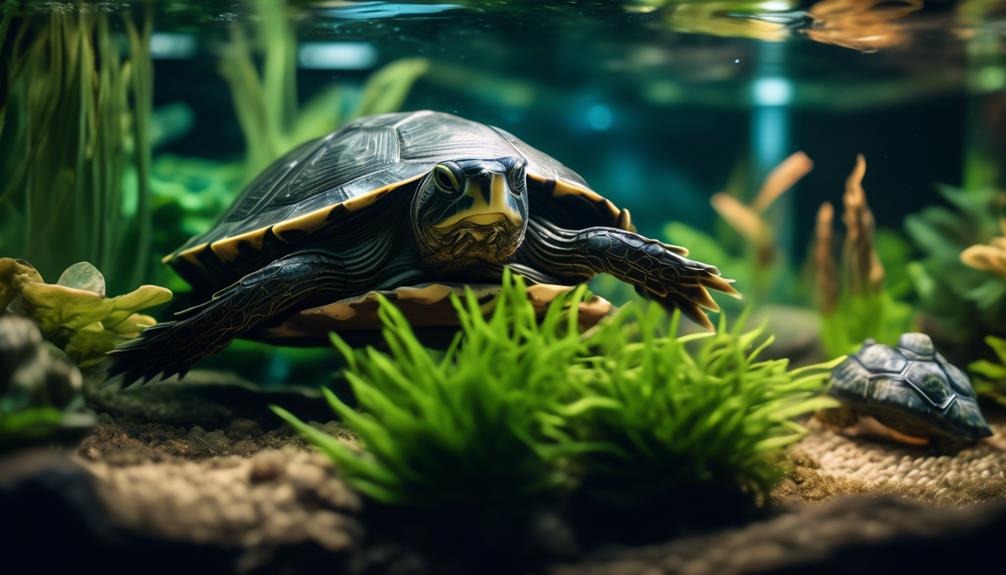
When caring for the Rare Map Turtle, it's essential to ensure proper maintenance and attention to its specific needs. Here are three important tips to keep in mind:
- Provide a suitable environment:
The Rare Map Turtle requires a large enclosure with proper filtration to maintain water quality. It needs deep water for swimming and a log snag for resting. Additionally, a basking site with a minimum temperature of 80F and UVB lighting is necessary for its overall well-being.
- Feed a balanced diet:
This turtle is carnivorous and enjoys a variety of foods such as snails, mussels, fish, crickets, worms, and aquatic insects. It may occasionally consume aquatic plants as well. Commercial turtle pellets can be included in its diet to ensure proper nutrition.
- Create a peaceful community:
The Rare Map Turtle has a docile personality, making it suitable for community enclosures. It enjoys basking and spending time in the sun. Providing a peaceful environment with compatible tankmates will help promote a happy and healthy turtle.
Frequently Asked Questions
Are Rare Map Turtles Aggressive Towards Other Turtle Species?
Rare map turtles are not typically aggressive towards other turtle species. They have a docile personality and are suitable for community enclosures. However, it's always important to monitor their behavior and provide adequate space and resources for all turtles.
How Often Should the Water in the Enclosure Be Filtered and Changed?
You should filter and change the water in your Rare Map Turtle's enclosure regularly. This helps maintain water quality and keeps your turtle healthy. Aim to do this at least once a week for optimal care.
Can Rare Map Turtles Be Kept in a Community Tank With Other Fish Species?
Yes, rare map turtles can be kept in a community tank with other fish species. They have a docile personality and are suitable for community enclosures, but ensure the tank is large enough and provides proper filtration.
What Is the Average Size of a Rare Map Turtle?
The average size of a rare map turtle is small to moderate in length. They are comparable to other map turtles in size. They can live for 20+ years and are found in various water habitats.
Are Rare Map Turtles Prone to Any Specific Health Issues?
Rare Map Turtles are not prone to any specific health issues, but like all turtles, they can be sensitive to water quality. Providing a clean and well-maintained habitat is essential for their overall health and well-being.
What Makes the Map Turtle Such an Intriguing Aquatic Companion?
The mysterious northern map turtle nature’s aquatic is an intriguing aquatic companion due to its unique shell pattern and ability to thrive in various water environments. Its fascinating behavior and playful nature make it a captivating addition to any aquatic habitat, attracting reptile enthusiasts and nature lovers alike.
Conclusion
In conclusion, the Rare Map Turtle is a truly captivating aquatic companion. With its unique physical characteristics and docile personality, it's perfectly suited for community enclosures.
Found in the rivers and ponds of several states, this turtle is a sight to behold. With proper care and maintenance, this fascinating creature can live for over 20 years, providing endless joy and companionship.
Embark on an aquatic journey like no other with the Rare Map Turtle as your companion.

